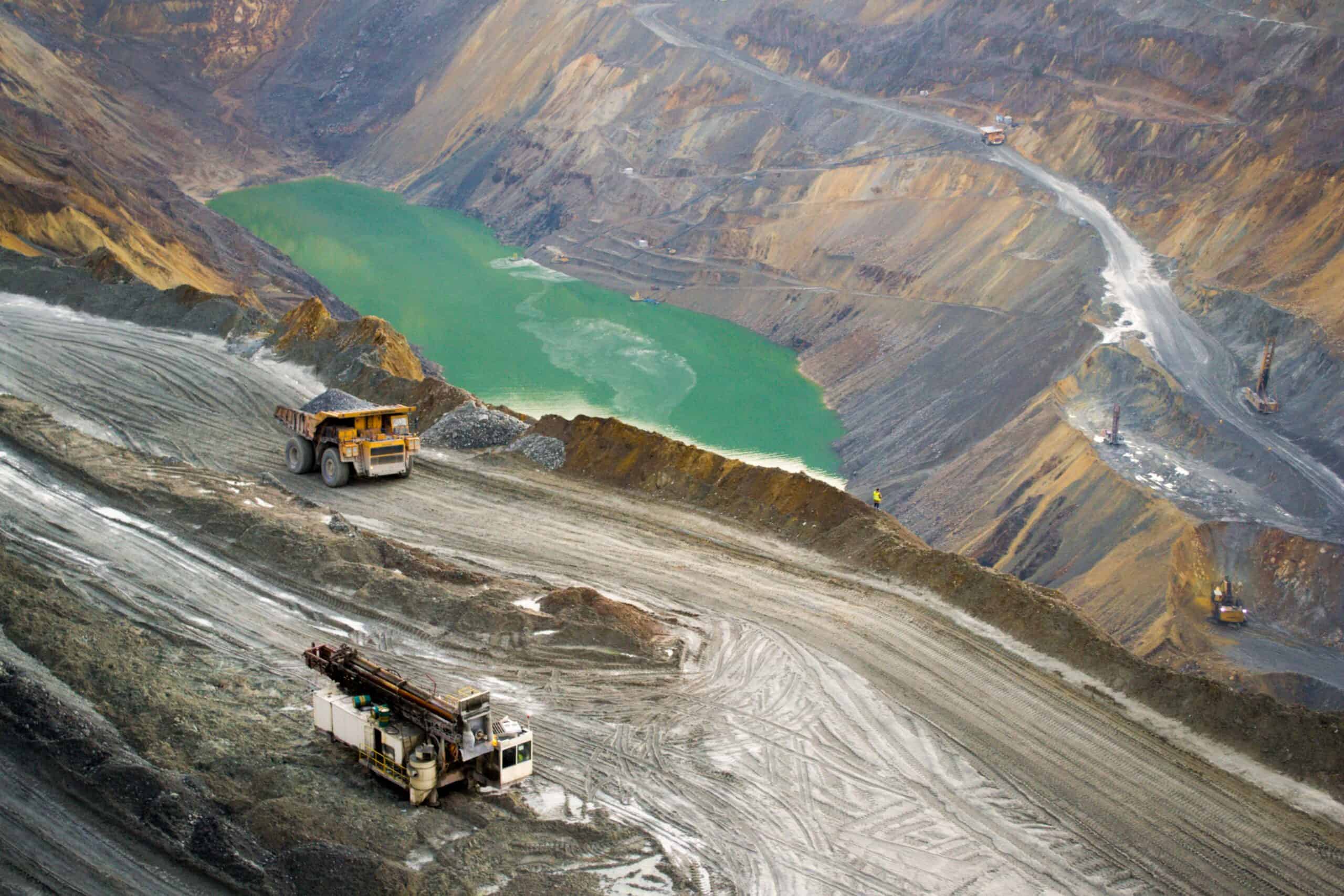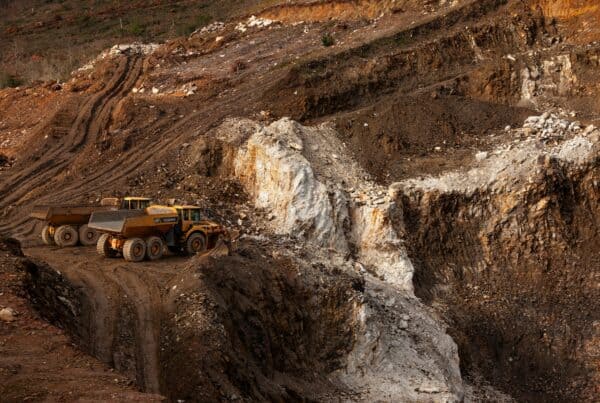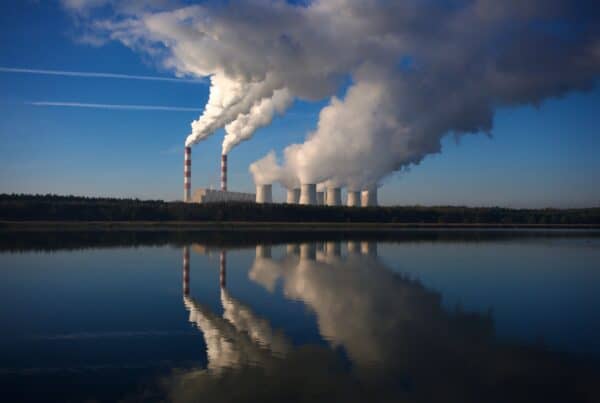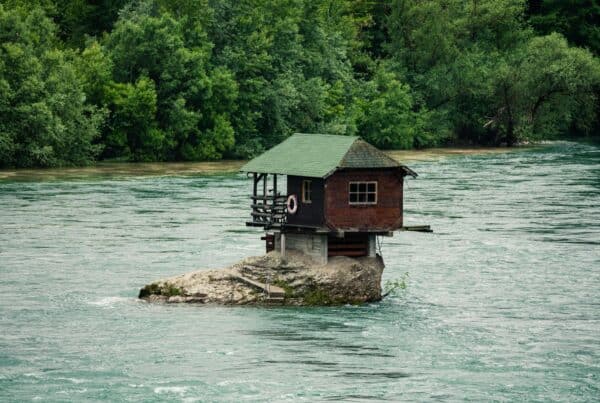Introduction
Just Finance International (JFI) is a Dutch NGO focused on promoting transparency and accountability in global development and infrastructure finance. Their main activities include in-depth research on financial flows and advocating for climate and environmental justice, as well as human rights. They emphasize the impacts of large-scale infrastructure projects on local communities and the environment. Specifically, they analyze investments such as those from China in the Western Balkans, highlighting issues related to pollution, forced resettlement, and loss of livelihood.
In January 2024, Blue Europe fellow Sonja Stojadinovic worked with Just Finance International on a research project regarding Chinese investments in the Western Balkans. Particularly, the team she worked with focused on the Chinese mining company Zijin’s copper and gold exploration in Bor and Majdanpek [1], as well as the broader implications and issues surrounding the Chinese involvement in the region [2]. JFI has also produced a geographical illustration of the popular response to Chinese investments in the Western Balkans, comprising both protests and legal complaints arising in Bosnia and Herzegovina, Serbia, Montenegro, Albania and North Macedonia [3].
To gain more insights on this valuable research, we interviewed JFI’s Senior Advisor Nils Resare. He is an investigative reporter, editor and author, working mainly in international development, trade and security policy. Below questions and answers.
Interview with Nils Resare
Conducted by Andrea Bogoni.
1. Can you elaborate on the key findings of your recent research regarding Chinese investments in the Western Balkans? From your research trip to Bor and Majdanpek, what were the most striking impacts of the Zijin company’s mining operations on local farmers?
From our experience we see that there is almost always a discontent with investments that have a large social- or environmental impact on a local community. People will raise their voices and sometimes start legal processes against the responsible party. However, what we see when we focus on the Chinese investments that have taken place in the Western Balkans in the last decade is a significantly bigger scale of discontent and protests. Our research shows more than 100 criminal complaints and/or protests in response to the negative impacts, particularly in Serbia where most of the Chinese investments have taken place.
In Serbia we also see how the legal framework, and legal interpretation, have changed in favour of Chinese investments. The transparency and communication are so limited that people have no way of understanding how their neighbourhood is going to transform in the near future. For the citizens of Bor and Majdenpek this is particularly disturbing. New mining operations can literally start in their backyard without any notification. The investment of Zijin mining in Bor is one of the most reckless I have seen on my trips in the Western Balkans. The environment is already a disaster and the impact on the population is devastating.
2. Have there been any significant efforts by Western Balkan governments to hold Chinese companies accountable for their actions? And what role have local governments played in either supporting or opposing these Chinese investments and their practices?
I am not aware of any Balkan country holding the Chinese investors accountable if one speaks about ensuring legal loopholes or practices are closed, as well as impacts remedied from the project-affected person’s perspective, but we have not looked into how each government deals with the accountability question. Consistent with our earlier research from 2022 such as in the case of Serbia [4], the country’s public procurement law continues to weaken transparency and is open for abuse; and that the Serbian government often declares projects, particularly Chinese investments in polluting industries, to be of national interest so that it can apply laws more flexibly. Whether a Balkan nation supports or opposes these investments would need further investigations.
3. How has the media in the Western Balkans covered the controversies surrounding Chinese investments? And how aware are the general public in these countries about the environmental and legal issues associated?
There are some of the Chinese investments that have caused a lot of media attention such as the highway construction in Montenegro and the case with the Vietnamese forced labour at the Linglong factory in Serbia. Still there are many other investments that didn’t create much impact simply because the local media is too weak or that civic actors and NGOs working on the cases such as Kostolac B3 do not get enough attention. Because of this, there might also be cases that we simply missed in our mapping.
In Serbia, big government-controlled media doesn’t seem to be very keen on reporting about the negative impact from the Chinese investments. In other countries, there is more reporting.
4. How have local communities in the Western Balkans responded to the environmental and legal challenges posed by Chinese investments? And how effective have local protests and legal actions been in addressing them?
As described in our mapping, there have been numerous protests or legal complaints all over WB. But I would say that the protests have been less intense in places where a large part of the population is depending on investment for their livelihood. This is for example true for the iron and steel factory in Smederevo. Very few people wanted to criticise the increased pollution from the factory even though it affected their daily life and their health.
5. Can you discuss the role that NGOs have played in documenting and addressing the issues with Chinese companies? What are some of the legal challenges faced by citizens and NGOs in bringing cases against Chinese companies?
Several NGOs played an important role in addressing the problems with different Chinese investments. In Bosnia, for example, the NGOs played a vital role to prolong the investment in Tuzla 7 coal power plant. This is an important explanation to why this project now is dead which is a relief both for the environment and for the climate. In general, the local NGOs have been vital to address some of the negative impacts from these investments.
6. Despite the controversies, have there been any positive economic impacts from Chinese investments in these regions?
This is nothing we have been mapping but, in many cases, the Chinese investments saved old non profitable industries or mines from the Yugoslavia period. This prevented thousands of workers from unemployment, created work for subcontractors and local business. In many places the workforce is grateful to the investors and keep loyal to them. The problem occurs when pollution destroy their health, or their legal rights are not obeyed.
There are also cases where large amounts of raw material are exported from the Balkan countries without profiting the local economy to any big extent. Even if the workers get decent salaries a lot of wealth is taken out of the country in a colonial manner. This is for example obvious in Bor where huge amounts of gold and copper is exported from the country on a daily basis.
7. How has the international community, including the EU, reacted to these developments?
There has been a general concern from the EU about the Chinese presence, especially in Serbia but this activity is nothing we have been addressing in the mapping of criminal complaints.
8. Can you share specific stories of individuals, such as Ivica Jovic, who have faced land confiscation, and discuss the legal challenges they have encountered?
The small-scale farmer Ivica Jovic claims that 1.7 hectares of his land was confiscated by the mining company Zijin after he refused to sell it to them. Part of his land is now useless and some of the roads connecting his farming activities are now destroyed. Ivica Jovic is only one of many farmers in the region experiencing similar problems. It is a long and expensive way to take the cases like this to court which make some of the affected farmers hesitate.
9. Based on your research, what do you foresee as the long-term implications of continued Chinese investment in the Western Balkans for local communities and the environment?
It depends on the governments and the law enforcement in the country. The legal standards must be the same for all investors, no matter where they come from. If basic national regulations are followed, and sound economic calculations are made, the problems are likely to be smaller. But if countries continue taking grand loans from China, and bypass the legislation, we are going to see big problems for the environment, climate and for the affected societies.
References
-
Just Finance International (February 2024), Despair among Serbian farmers when their land is confiscated. Available at: https://justfinanceinternational.org/2024/02/23/despair-among-serbian-farmers-when-their-land-is-confiscated/. ↑
-
Just Finance International (April 2024), Chinese investment in the Balkans leaves a trail of controversy. Available at: https://justfinanceinternational.org/2024/04/17/chinese-investment-in-the-balkans-leaves-a-trail-of-controversy/. ↑
-
Just Finance International (2024), Protests and criminal complaints in the Western Balkans. Available at: https://justfinanceinternational.org/wp-content/uploads/2024/05/balkan-map-all.pdf ↑
-
Just Finance International (June 2022), Legal Memo on Chinese investments in Serbia Shows Weakened Rule of Law, Leading to Forced Labour and Human Rights Abuses. Available at: https://justfinanceinternational.org/2022/06/13/legal-memo-on-chinese-investments-in-serbia-shows-weakened-rule-of-law-leading-to-forced-labour-and-human-rights-abuses/ ↑





